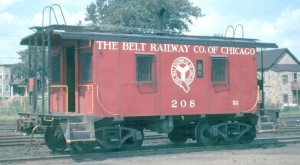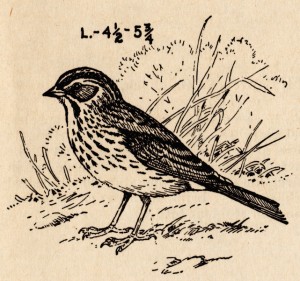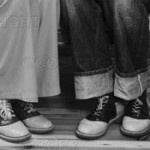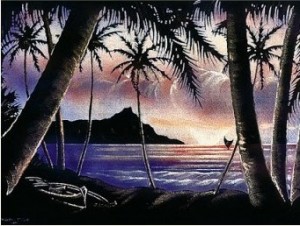Rig ad in Billboard (1970)
Thursday, May 17th, 2012Full page Rig ad from the May 23, 1970 issue (p. 73) (click to enlarge). I still can’t get Kendell (bottom left) to admit to liking anything about the album or its cover.
Full page Rig ad from the May 23, 1970 issue (p. 73) (click to enlarge). I still can’t get Kendell (bottom left) to admit to liking anything about the album or its cover.

Kendell Kardt has posted a disarming children’s story with a Thanksgiving theme on his blog. It’s called The Pearl, and let’s hope that by this time next year, some wise publisher or animator will have gotten to know William the Bell Buoy, Sally the Seagull and Freddy the Fish and given their story its due.

Kendell Kardt “International Folk Bazaar” interview, 09/09/10
I got talking with Kendell Kardt about his pre-Rig days in New York City and he again made my head spin somewhat when he talked about a folk group he played in called “Forever Children” that included his friend Paul Giovanni (other members included Ronnie Gilbert, Joyce Aaron, and Mike Poznick). This is the same Paul he writes about in his private, online memoir – a guy he gave guitar lessons to and who performed, along with the aforementioned Ms. Aaron (Kendell’s girlfriend at the time), in an experimental troupe called the Open Theatre. Paul and his partner, the British playwright Peter Shaffer, eventually (and benevolently) flew Kendell out to London during an Open Theatre stint out there circa 1970 so he could reunite with Ms. Aaron.
That’s pretty much the end of Kendell’s own story with Paul, but the memory drive in my head kept clicking over the familiar-sounding name, and I remembered it was the same name listed as composer on the opening credits of the the 1973 Wicker Man cult film (performed by a group called “Magnet”). So I dug up an album cover by the group Side Show, that I since found out Giovanni had also belonged to, and Kendell said, “yes, this is Paul, second from the left.” I then told Kendell about The Wicker Man and have now replaced the long standing encyclopedia listing in my head that read “Paul Giovanni: Forgotten British folkie who composed a one-off soundtrack to a singular movie” to “Paul Giovanni: New York actor, composer, and old friend of Kendell’s who also happened to write the music for a singular movie.” Giovanni passed away in 1990, but although this New York Times obituary makes no mention of it, that enchanting soundtrack alone will keep his memory alive and well.
(Another friend of Kendell’s, by the way, recently sent along this piece from the Guardian about a Rocky Horror-style Wicker Man singalong that just took place in London…)
I was having a conversation with Kendell, who’d just seen my earlier post about the Klowns, and then he started talking about a session he once played for legendary Klowns producer Jeff Barry (who was a friends with Rig’s first drummer, Tom Cerone). The session was for “Sugar, Sugar,” the 1969 #1 hit you know by heart. So here I am in a position to reveal to the world that the faceless “studio musicians” mentioned often by those pop historians who want to make it clear that cartoon characters didn’t really play on those records, were – in the case of the Archies’ quintessential hit – the guys from Rig. Kendell, sitting at the Wurlitzer electric piano, remembers this comment from Mr. Barry clearest: “Throw in some more of that Jamaican horse sh*t!” Kendell also says the following: “Maybe we should have let Jeff Barry produce the Rig album. But we were too stuck up for that.”
That’s a generational thing. My generation, weaned on a more aggressive level of pop culture commercialism, revels in the prefab aspects of the Archies, Monkees, and their ilk, while they make the previous generation’s hair stand on end. Let’s not even talk about today’s youth generation, who’s probably never thought negatively about songs appearing in commercials and who will be writing doctoral dissertations about ringtones.

I’ve written plenty here about our friend Kendell Kardt and his former group Rig. But let’s give a listen to the pensive closing track on that lone Rig LP – “Last Time Around” by bassist Don Kerr (standing next to Kendell, who’s on the far left). If you have any doubts the band didn’t have something special going on as a unit, give this a listen and think again.
Rig – “Last Time Around”
posted by Kim Simpson

This guitar/vocal gem comes from a tape of 3-4 songs Kendell made at Juicy John Pink’s, a club in DeKalb, Illinois which had an adjoining studio. Featuring guitar refrains taken from the old hymn “O Come, O Come Emmanuel” and lyrical references to “Oh Susannah,” this ode to the downtrodden’s got a vintage and stately aura.
Kendell Kardt – “Death of a Hobo”

This track, from Kendell Kardt’s unreleased Columbia sessions, features a gorgeous arrangement by prolific Nashville-based composer Bill Pursell. If you’re well-versed in your instrumental hits of the sixties, you may know of an atmospheric track called “Our Winter Love,” that features a nicely plump, buzzed guitar/proto-synth duet near the middle. Well, this beauty was Pursell’s piece, and I wouldn’t be surprised if it aroused a tinge of professional jealousy in Percy Faith at the time. Pursell’s only big hit, the song reached #9 in ‘63. (Give it a listen here).
Kendell’s friendship with Pursell came about through his work on the Columbia LP. He had been given some arranger demos to listen to and chose Pursell due to what he’d heard as a more classical than commercial orientation. “Whatever you might think of the song itself,” as Kendell puts it, “I can’t say enough in praise of the beautiful symphonic and choral treatment he created for this piece. I think the word ‘masterpiece’ may actually apply here.” Amen, Kendell.
Buried for decades as a memory at least powerful enough for the two to drunkenly wonder together about what might have been, now’s everyone else’s chance to hear it.
Kendell Kardt – “Little Sparrow” (1972)

Here’s another cut from the same unreleased Columbia sessions that brought us Kendell’s “Funky Song.” It’s called “Marylou” and you can hear a touch of the fifties nostalgia that had been wafting through (and generally cheering up) the hungover pop culture of the post-sixties. More Columbia tracks to come later this week, so stay tuned.
Kendell Kardt – “Marylou”

While Kendell was staying with a Hawaiian family that included 10 children during his time in L.A., he was able to meet the family’s grandmother, who was known affectionately – as many Hawaiian grandmothers are – as “Tutu.” This particular Tutu was the widow of a Catholic missionary who’d served on a South Sea island inhabited by cannibals. The revered matriarch’s visits from Hawaii were “anticipated with great delight,” and when she came, the children would traditionally gather at her feet and ask her to repeat once more the story of how she lived in the jungle with the cannibals. Kendell found this little ritual “both charming and amusing,” given the fact that he felt like he too was “living in the ‘jungle’ – right there in LA,” where the “‘natives’ were as exotic and perplexing” as any that Tutu had encountered. His tongue-in-cheek “Tutu and the Cannibals” would become a popular staple of Kendell’s live performances.
Kendell Kardt – “Tutu and the Cannibals”